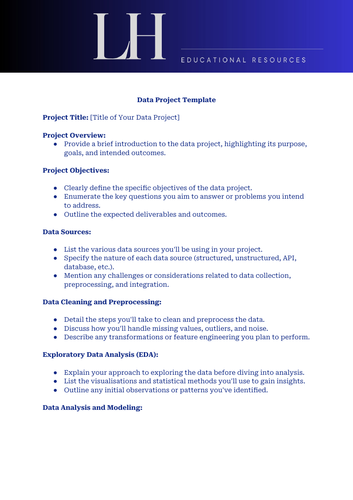LH Educational Resources
Educational resources to assist learners globally to learn and develop. Embedded with teaching best practice to personalise the learning experience, test knowledge and reinforce learning. I have worked in a number of industries globally. My inter-changeable career has informed me of the value of continuous learning, a growth mindset and transferable skills. I hold a PGCE qualification in the subject ICT. I currently work facilitating a Digital & Tech Level 3 apprenticeship qualification.

![Data Dictionary [Template]](https://d1e4pidl3fu268.cloudfront.net/2933d113-c7e0-45f9-bd64-d090ce944b6d/DataDictionaryTemplateGoogleSheets.crop_258x193_0,0.preview.png)

![Journaling for achieving your goals [7 day Template]](https://d1e4pidl3fu268.cloudfront.net/4a337ba2-f637-4694-b3e2-be869dd1ac20/NewTeacherJournaling7DayTemplateV11GoogleDocs.crop_637x478_53,0.preview.png)

